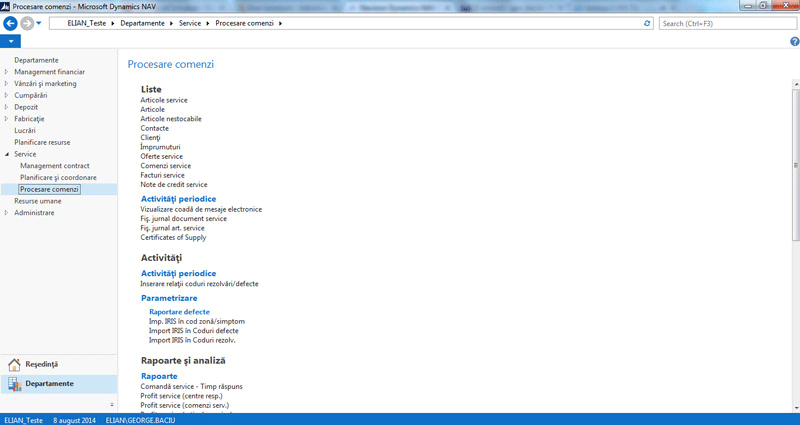The Service Management module allows you to manage service activity for warranty items and service operations in general. It supports management with resource planning tools for service operations.
The Service Management module can be used by companies whose main activity is to provide service, or by service departments of production/distribution companies, which perform service as an auxiliary activity.
Providing ongoing service to customers is an important part of any business and one that can be a source of customer loyalty and satisfaction, in addition to revenue. However, managing and tracking service is not always easy, and Dynamics 365 Business Central offers a set of tools to help.
These tools are designed to support service operations and repair service areas and can be used in business scenarios such as complex customer service distribution systems, industrial service environments with material invoices, and high-volume dispatch of service technicians with parts management requirements.

Among the features of the module we list:
* Support management with resource planning tools for service operations.
* Service items management: it is realized by registering service items with all related information: serial number, parts list, contract information, response times, warranty start and end date. For the components of an item it is possible to know how many times they have been replaced and when.
* Service price management: is achieved by setting, maintaining and tracking service prices, assigning fixed, minimum and maximum prices and defining price groups for a limited period of time for a specific customer.
* Service order management: it helps to record the interventions occurring after the sale of the service items, the overhauls and repairs that are done so that a history of interventions can be obtained for an item. For contracts concluded, orders are automatically generated according to the terms of the contract
Cost: Reduce operational costs by permanently managing service prices. It also reduces potential costs associated with interventions outside the product warranty.
Time: Saves time through a good record of the association between resources and employees. Considerably reduces working time by scheduling service calls and orders, tracking parts/consumables.
Risks: Reduces business risks by transparency of information: an item can be seen immediately how many times it has arrived for service in the post-warranty period, and service item management allows all service documents to be viewed from one place


